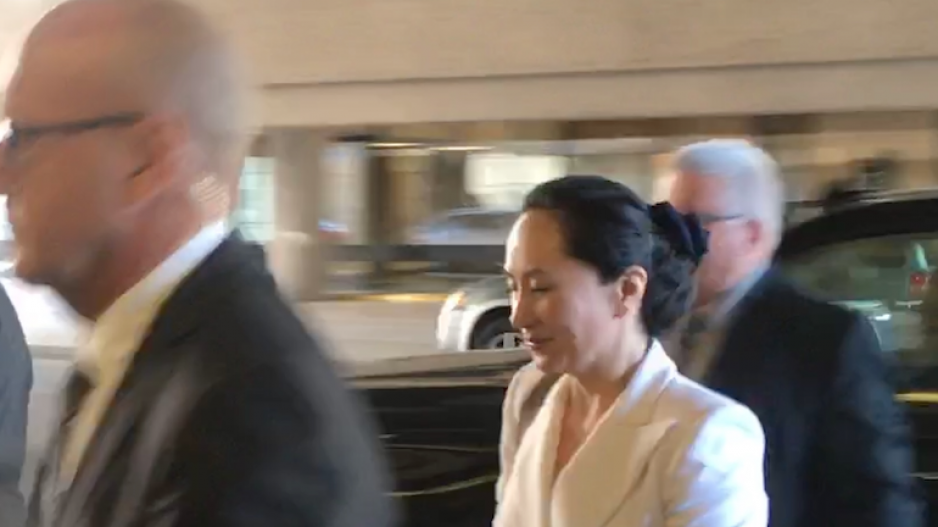Day 2 of the double criminality portion of Huawei CFO Meng Wanzhou's extradition hearing begins in Â鶹´«Ă˝Ół»today, as the defence is expected to wrap up its argument on the issue.
The day began with Meng lawyer Eric Gottardi wrapping up the defence argument for the fraud charges facing the Huawei executive being based on US sanctions against Iran that Canada has “repudiated.”
However, judge Heather Holmes continued to press the line of questioning of — if assuming the facts in Meng’s accusations in the U.S. are true — would the case be a viable Canadian fraud case if no extradition is involved.
Gottardi said Tuesday that it would not be a viable fraud case because one cannot isolate the sanctions from the case — sanctions that is not followed by Canada. Holmes, in turn, asked if all positions and conducts of fraud would need to be in Canada for Canadian courts to prosecute; Gottardi confirmed saying Canada has no history of prosecuting foreign citizens outside of Canadian jurisdictions.
The back-and-forth then extended to a precedent in a hypothetical case regarding Germany and its different tax reporting laws, where — if an individual underreported his or her taxes in Germany then escaped to Canada — would Canada disregard those tax violations as Meng is arguing to ignore the U.S. sanctions, Holmes asked.
Gottardi held firm that reciprocity — a respect of each country for the other’s laws in an extradition treaty — is essential in determining whether or not to extradite, and Canada should not be compelled to enforced American sanction laws that may be temporary in nature.
“We are not asking the court to ignore what has been alleged,” Gottardi said. “Typically, the Crown argues the essence of the conduct in question, while the defence goes into the details... Here, we want you to embrace the essence of the issue, which is the breaking of the sanctions.”
The day wrapped up with Meng lawyer Scott Fenton making the argument around whether a fraud charge against Meng would stand in Canada, centring on whether there is “causation” between the conduct and potential loss to HSBC (to which Huawei allegedly misrepresented the origins of its Iran proceeds) and of the risk of loss is too remote.
Fenton cited legal precedents in Canada where a party’s conduct counts as fraud only if there is causation between the act and the victim’s risk of economic loss. Precedents also noted that the risk of loss must be significant and not too remote.
In that case, when considering the possibility that HSBC unknowingly handled funds from Huawei’s Iran business, HSBC would be an innocent victim that would not incur a penalty in a Canadian context.
Fenton also listed a number of U.S. allegations that Huawei’s actions would lead to a risk of economic loss for HSBC, saying none of them would apply in Canada. Use of U.S. criteria for meeting Canadian legal fraud requirements on a victim’s risk of loss is inconsistent with Canada’s legal sovereignty, Fenton argued.
“It would turn single criminality into double criminality, then it would turn double criminality into American criminality,” he said, adding that court records from the U.S. do not highlight any other potential economic loss independent of the sanctions against Iran.
The Crown will present counterpoints starting Wednesday.
Ěý



